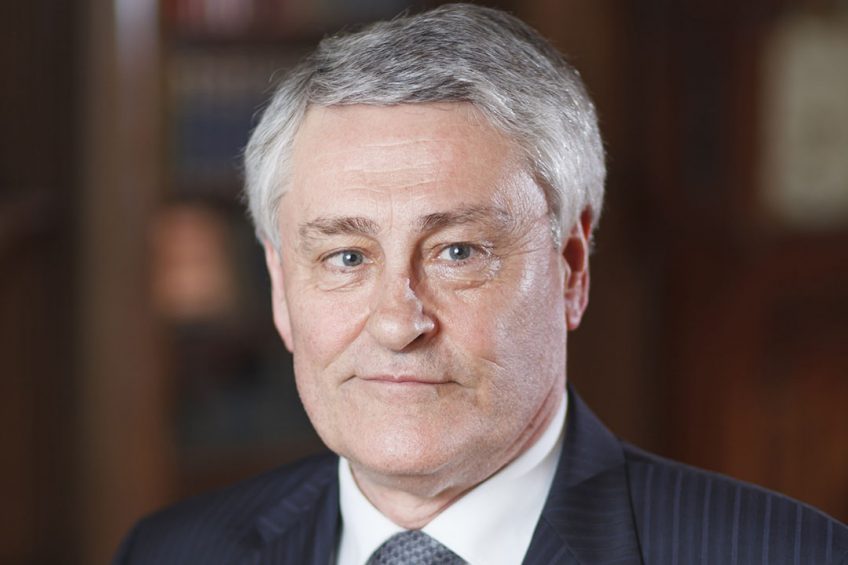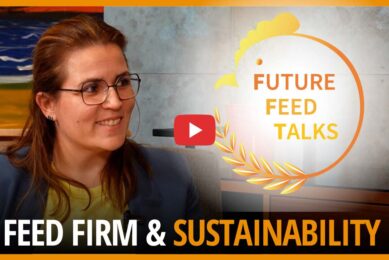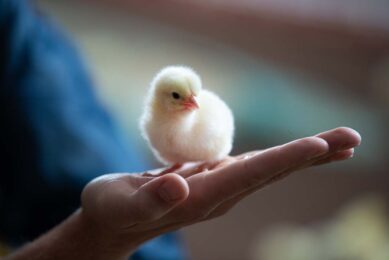IPC president: Looking beyond Covid-19

New IPC president Robin Horel continues to monitor issues and share guidance with his members in the face of Covid-19, while at the same time keeping a long-term focus on sustainability.
It has only been a few months since Robin Horel became International Poultry Council (IPC) president and in his short time at the helm, the biggest challenge in its history has appeared. Poultry World interviewed him from his home in Canada to discuss Covid-19 and other issues affecting the global poultry industry. Horel also outlines future IPC goals related to sustainability and more.
Robin Horel – Profile
Robin Horel is president of the International Poultry Council and former long-time president and CEO of the Canadian Poultry and Egg Processors Council (CPEPC). Horel grew up and was educated in Saskatoon. After some travel in Europe, he found work with Canada Packers Poultry where he worked in the plant, as well as in clerical, sales and sales management roles before becoming general manager by the time he was 30. Over the next 20 years he assumed more responsible roles in production, sales and general management in four provinces across Canada. During his 27-year career with the firm (which eventually became Maple Leaf Foods), Robin Horel served as a director on a number of provincial and national boards, including the CPEPC. In 2003 he left Maple Leaf to take on the role as CPEPC’s fourth president and CEO, a position he held until his retirement in November 2019.
In late 2005, a core group of poultry industry association executives convened in Germany to form the International Poultry Council. Founding members included Argentina, Brazil, Canada, Chile, China, Egypt, the EU, Mexico, Thailand, Turkey, and the US. Currently, there and 23 IPC country members and 52 associate members. IPC country members represent more than 95% of the global poultry trade and more than 90% of poultry production. IPC is also recognised as the voice of the poultrymeat industry by FAO (the Food and Agriculture Organization of the United Nations), OIE World Organisation for Animal Health and Codex (the Codex Alimentarius Commission that was established by the World Health Organization and the FAO to develop international food standards).
Why did you want to be IPC president?
I wanted to give back to the industry. I retired from my position as president and CEO of CPEPC at the end of November 2019 and this is a way for me to continue to be involved and be of service to the industry that has been so good to me and my family for 43 years. I want to thank the board of directors of CPEPC for agreeing to allow me to continue to represent Canada at the IPC after my retirement which also enabled me to apply for and accept the position of IPC president.
While the IPC conference in April has been postponed, what are its plans for the future? What will the focus be?
Currently our plan is to hold the conference at the same venue in Bordeaux, France on 6-9 October 2020. Before it was postponed, the conference planned to focus on a discussion of alternative proteins, a review of international market dynamics and updates from the IPC working groups (sustainability, food safety, animal health & welfare and communications). We were also planning to launch a new working group on trade.
One of the planned key topics that will be discussed in October is further championing the United Nations’ Sustainable Development Goals (SDGs) arising from the IPC’s formal signing and commitment to these during the Sao Paulo meeting in 2019.
 Covid-19 Up-date
Covid-19 Up-date
What impact is the pandemic having on the global poultry sector and how are they dealing with it.
What are IPC’s goals for 2020?
One of our biggest goals for the coming year is to move our sustainability initiatives forward generally, addressing in particular our commitment to the SDGs. IPC decided to focus on five of the UN SDGs where we believe our industry can have the most impact. These include ‘zero hunger’ (SDG 2), which relates to sharing good production practices and promoting sustainable production and ‘good health and well-being’ (SDG 3), which involves promoting poultry as a healthy choice and sharing good management and manufacturing practices. Our other three chosen SDGs are SDG 4 (using education and training to build capacity to ensure high-quality and sustainable production), SDG 9 (supporting innovative and sustainable industrialisation) and SDG 13 (reducing carbon footprint).
Even with the COVID-19 pandemic, sustainability continues to be a priority for the IPC executive committee and for our new secretary general Nicolò Cinotti. After an international search, Nicolò was hired last fall. He is a veterinarian based in Rome and comes to us from Unaitalia, the Italian Poultry Association. Nicolò started with us on 1 January 2020 and his solid industry background has already proven to be very valuable as our industry works through the issues with Covid-19.
 The who’s who in the global poultry industry talk to Poultry World…
The who’s who in the global poultry industry talk to Poultry World…
click here for more interviews
Please tell us about the IPC efforts relating to antimicrobial awareness?
IPC recognises that antibiotic resistance is a serious public health concern. My best response is the IPC’s formal position which states that we recognise that animal antibiotics must be used responsibly to minimise animal agriculture’s potential contribution and that’s why we’ve made a commitment to the responsible use and stewardship of antibiotics. As part of this commitment, we will collectively continue to reduce the need for antibiotics through good management practices, such as the use of vaccines, proper nutrition, good ventilation, hygiene and appropriate housing. But IPC also recognises that there are times when antibiotic use is the responsible choice in order to prevent and relieve animal suffering. I am proud of the work done by our members to produce our principles and position statement. Our 11-page document is available on the IPC website.
One of the planned key topics that will be discussed in October is further championing the UN Sustainable Development Goals”
What 3 things should the global poultrymeat industry be most focused on right now and why?
- Obviously, the Covid-19 pandemic is one. I am hopeful that we will be able to hold our next conference in October and, if we can, this will certainly feature. Similar to what we learned in Canada from our experience with avian influenza, we need to have a full ‘lessons learned’ session and develop protocols for dealing with a recurrence or a similar situation in the future. We are well placed to facilitate that with members from every region of the world representing almost 90% of the world’s poultry production.
- I already mentioned our need to champion the SDGs we have committed to. We have a good story to tell consumers regarding the sustainability of our industry and we need to tell it. But more importantly, we need to commit to improvements in all areas of sustainability. These include our environmental footprint, animal health and welfare, worker health and welfare, food security and food safety.
- Lastly, our industry needs to understand the alternative protein trends and determine our best course of action. Given my position, I am fortunate to have a clear view of our industry and of consumer trends in many different parts of the world. This trend is quite different in different countries. I know it is easy to think of the rise of alternative proteins as a threat to our industry and clearly they could be, but I think they could be an opportunity as well. Consumers are focusing on protein and poultry products are very well-positioned to meet their needs.
In all three of these areas it really comes down to effective communication: internally to the industry around the world and externally to government bodies and consumers.
Obviously the Covid-19 pandemic needs our full attention, there are certainly lessons we can learn from this crisis”
How has Covid-19 affected the global poultry industry thus far and what possible future consequences do you envisage?
We are in contact with our member countries and our associate members which include poultry processors, customers and suppliers of genetics, poultry health products, packaging and distribution. They are sharing their experience with us which we then share with our other members. They continue to advise us of any issues they are encountering.
As for issues so far encountered where we can make a difference, we have advocated on their behalf with international organisations. A recent example was our intervention with the OIE, FAO and WTO to ask them to urge for the continuation of airfreight for critical supplies, notably in our case, primary genetics in the form of day-old chicks and hatching eggs.
As you can imagine there are many issues arising in every country but I am happy to report that as far as I know, all countries have agreed that the production of food, including poultrymeat, is a critical priority. Keeping the supply chains moving is difficult but our members and the government authorities in every country have the same goal.
Join 31,000+ subscribers
Subscribe to our newsletter to stay updated about all the need-to-know content in the poultry sector, three times a week. Beheer
Beheer











 WP Admin
WP Admin  Bewerk bericht
Bewerk bericht